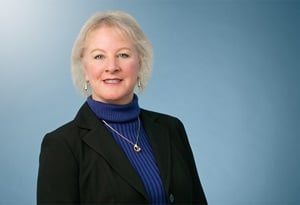Franchise Industry Victory: McDonald's Defeats Joint Employment Claim Based on Ostensible Agency Theory
On March 10, 2017, a federal court in California granted summary judgment in favor of McDonald’s and dismissed joint employment claims that had been brought against it by employees of one of its franchisees. In Salazar v. McDonald’s Corp., the plaintiffs claimed that McDonald’s was liable as an “employer” under the California Labor Code on the theory that McDonald’s caused plaintiffs to reasonably believe that the McDonald’s franchisee was ostensibly acting as McDonald’s agent. Judge Richard Seeborg of the Northern District of California rejected that argument, and held that—as a matter of statutory interpretation—ostensible agency was not a valid predicate for the plaintiffs’ claims under the California Labor Code.
Earlier in the case, in August 2016, Judge Seeborg held that McDonald’s was not an “employer” under the California Labor Code because it did not retain or exert direct or indirect control over plaintiffs’ hiring, firing, wages or working conditions. However, at that time, the court also held that McDonald’s may be liable on a theory of ostensible agency. In response to a renewed motion for summary judgment brought by McDonald’s, the plaintiffs argued that the company could be a joint employer based on ostensible agency because the relevant definition of “employer” included the phrase “through an agent.” The court rejected that argument, holding that the test for whether McDonald’s was an employer applied regardless of whether the employment relationship was direct or through alleged agents (ostensible or otherwise). The court further held that because the definition of “employer” conflicted with general provisions of California law codifying ostensible agency, the specific wage order definitions took precedence. As a result, the court dismissed all remaining claims against McDonald’s.
This is a notable decision that will impact legal claims against franchisors brought in California by franchisees' employees, especially in light of the decision in the Northern District of California approximately eight months ago in Ochoa v. McDonald’s Corp., where Judge James Donato certified a class of current and former employees of a franchisee based, in part, on a theory of ostensible agency. Although the analysis in the present case was pointedly focused on interpretation of a specific wage order of California’s Wage Commission, it deals a blow to franchisee employees seeking to impose joint employment liability on franchisors. It remains to be seen what impact this decision may have in other courts that are currently considering joint employment claims directed at franchisors, but it is sure to be relied upon by other franchisors faced with claims based in whole or in part on ostensible agency theories. Media reports indicate that the plaintiffs intend to appeal to the Ninth Circuit.
The material contained in this communication is informational, general in nature and does not constitute legal advice. The material contained in this communication should not be relied upon or used without consulting a lawyer to consider your specific circumstances. This communication was published on the date specified and may not include any changes in the topics, laws, rules or regulations covered. Receipt of this communication does not establish an attorney-client relationship. In some jurisdictions, this communication may be considered attorney advertising.


